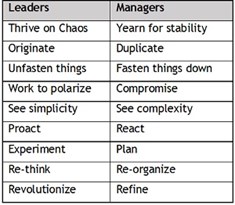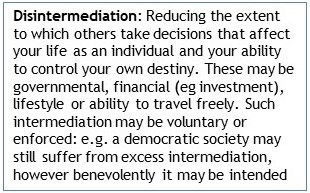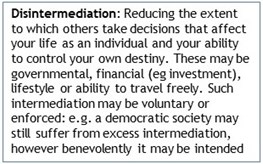“When he had finished washing their feet, he put on his clothes and returned to his place.
“Do you understand what I have done for you?” he asked them. “You call me 'Teacher' and 'Lord,' and rightly so, for that is what I am. Now that I, your Lord and Teacher, have washed your feet, you also should wash one another's feet. I have set you an example that you should do as I have done for you.”
John 13:12-15
There is rarely a time when leaders are not in the spotlight, and that is particularly so at the present. In the West, we have celebrated Mikhail Gorbachev; while in Russia Putin has tried to play down his passing. Trump's home at Mar-a-Lago has been raided by the FBI, and Biden has accused him of attacking the soul of America. Xi maintains his iron grip on China; and here in the United Kingdom we prepare to greet Johnson's successor.
All these strong characters — and still the world is in a real mess, in terms of peaceful co-existence, economics and climate change.
There are few leaders in history whose legacy is without challenge — perhaps Gandhi and Mandela are the two who come closest to that ideal. Gorbachev also came close: his strategy for global peaceful co-existence was all there and, if he had adopted egalitarian capitalism as the successor to communism, he may have led a successful transition to peace and prosperity within his own country as well. But unfortunately the oligarchs grabbed that legacy and the country’s wealth, and the rich and powerful re-instated the autocratic rule from which Ukraine and the West is now suffering.
What is almost always missing from these world leaders — and, it's fair to say, from almost all leaders — is a willingness to embrace servant leadership. Arrogance is so often the Achilles heel of leaders, and genuine humility is hard to detect anywhere. So in this commentary, as our new Prime Minister takes the reins in 10 Downing St, we call for a proper understanding of servant leadership, and we explain why disintermediation is critical to its delivery and effectiveness.
 I’ve borrowed the title of Richard Higginson’s inspiring book ‘Transforming Leadership’ for this ‘Thought for the Week’; in it, he quotes from another book called ‘Mind of a Manager, Soul of a Leader’ by Craig Hickman. The table from that book contrasts some of the characteristics which define these complementary roles.
I’ve borrowed the title of Richard Higginson’s inspiring book ‘Transforming Leadership’ for this ‘Thought for the Week’; in it, he quotes from another book called ‘Mind of a Manager, Soul of a Leader’ by Craig Hickman. The table from that book contrasts some of the characteristics which define these complementary roles.
There's not scope here to explore these issues deeper, but I was able to use much of their inspiration for a speech in 2013 to a REME Officers’ Mess. The speech ended: ‘True leadership is indeed serving the communities with which we inter-relate [in order] to lead them to a better world, on behalf of our children and our grandchildren’.
The fact is that the best leaders empower others to take control of their own lives, because they know that their most successful legacy is to endow continuing progress after they’ve moved on. This is the essence of servant leadership: it means letting go, without fearing that well-known statement of King Louis XV of France: ‘Après-moi, le déluge’.
It's not easy to achieve, and particularly for those who find it difficult to let go of control. This is why disintermediation, possibly the central feature in moving towards a more egalitarian form of capitalism, is something which leaders have to build consciously into their designs, thereby paving the way for their own redundancy.
It doesn't come naturally.
Consider, for example, how Russia might have developed if Gorbachev had embraced disintermediation and a transition to egalitarian capitalism. Of course it would have been necessary to set in place a proper framework of property law, regulation and then individual empowerment throughout Russia, and to ensure that those with business and political power could not use corruption to leverage their position in order to amass wealth, and become the oligarchs of the future.
However, this was of course not the case. As our commentary of 4th April noted, the Russian people have been impoverished as the oligarchs held sway and enjoyed life, often in the United Kingdom (ref. ‘Butler to the World’ by Oliver Bullough). It's hardly surprising that this has resulted in a strong yearning for days gone by in Russia, as the huge majority of the people have never tasted the benefits of freedom.

 Disintermediation is a hard thing to understand, let alone embrace; there are few leaders in the free world who can really claim to understand the servant leadership that it calls for. Certainly not Trump: but those liberal and social democrats who understand social justice also find it hard to set systems in place for individual empowerment, independent of a controlling state.
Disintermediation is a hard thing to understand, let alone embrace; there are few leaders in the free world who can really claim to understand the servant leadership that it calls for. Certainly not Trump: but those liberal and social democrats who understand social justice also find it hard to set systems in place for individual empowerment, independent of a controlling state.
It must be built into the long-term fabric of political strategy, with concepts such as inter-generational rebalancing and mass equity participation to bring about a widespread sense of the responsibility which comes with ownership, in order to ensure that the legacy remains intact long after current leaders are gone.
Much here for the incoming UK Prime Minister to consider, if she wishes to achieve smaller government, lower taxes and social justice for all.
When I spoke to that REME Officers’ Mess, I used the analogy of peeling away onion skins to explain how successful entrepreneurs must detach responsibilities to others in order to achieve a mature organisation: a long-standing example of this could be found in the John Lewis Partnership. If political leaders wish to leave a legacy of continuing progress, they must do the same — but not just for their ministerial colleagues and their civil service, but for all the people who they serve.
This is disintermediation — this is servant leadership in action. It's not easy and it’s certainly not without risk, but it's the only way to leave a better world for our children and grandchildren.
Gavin Oldham OBE
Share Radio

